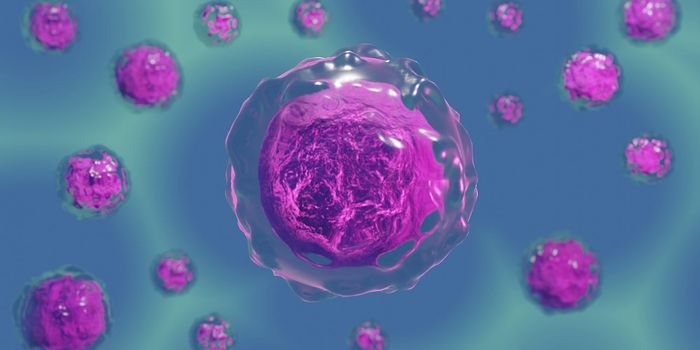Jane Cooke Wright: A Trailblazer in Chemotherapy Research
Public domain via Wikipedia. Source: NIH Author: National Library of Medicine
As we near the close of Women’s History Month, we recognize a notable woman in oncology research: Dr. Jane Cooke Wright. Dr. Wright performed critical work with anti-cancer drugs, earning her the moniker of “Mother of Chemotherapy.”
Jane was born in New York City in 1919. Growing up in a family of physicians, it is safe to say Jane had a lot of inspiration. Her grandfather, Dr. Ceah Ketcham Wright, received his medical degree from Meharry Medical College, one of the first schools in the country to train Black doctors. Jane’s step-grandfather and uncle were also physicians, and her uncle, Dr. Harold Dadford West, later became the first African American president of Meharry Medical College.
Jane’s dad, Dr. Louis T. Wright, was among the first African Americans to graduate from Harvard Medical School. He worked at Harlem Hospital, where he founded and directed the Cancer Research Center. Louis also served as chairman of the Board of the National Association for the Advancement of Colored People (NAACP).
Jane attended private schools in New York City, where she excelled academically and athletically. It may be a surprise that Jane decided to study art at Smith College. However, after some fatherly encouragement, Jane changed her major to pre-med and received a full scholarship to New York Medical College. In 1945, she graduated as the only female student in a class where she ranked third of 95 graduates. In 1947, Jane married a Harvard-educated lawyer named David Jones Jr. Jane, and David had two daughters, Jane and Alison.
After a short stint as a physician for New York City Schools, Jane made a career pivot, moving to Harlem Hospital to work with her dad. Jane and Louis experimented with chemotherapy drugs, a new frontier of cancer research in the early 1950s. The father-daughter duo complimented each other, with Louis conducting laboratory research using mouse models and Jane initiating patient-based clinical trials. In collaboration with Jewel Plummer-Cobb, the group tested new chemotherapy, including triethylene melamine (TEM), which cured patients with non-Hodgkin’s lymphoma, and antimetabolites, which target the nuclei of cancer cells. This work culminated with the 1951 seminal discovery of the anti-cancer uses of methotrexate, a drug still used to treat cancer.
Jane developed methods to test anti-cancer drugs on cancer cells in culture accelerating the pre-clinical component of drug discovery. She also optimized practices for administering chemotherapy by using a catheter to perfuse treatment directly to the blood vessels supplying the tumor.
Jane achieved many significant honors, including becoming the first woman elected as President of the New York Cancer Society and the first female physician to serve on the Journal of the National Medical Association editorial board. Jane held two prestigious presidential appointments, serving on the President’s Commission of Heart Disease, Cancer and Stroke, and the National Cancer Advisory Board, both under the appointment of President Lyndon B. Johnson. In addition, Jane was one of seven physicians (the only women) who founded the American Society of Clinical Oncology (ASCO).
When Jane retired in 1987, she had published over 75 manuscripts! During retirement, Jane spent time with her family and friends and enjoyed hobbies, including watercolor painting, swimming, reading mysteries, and sailing. Jane died on February 19, 2013, at 93. Dr. Jane Cooke Wright epitomizes a role model who defied both the gender and racial norms of her time. Jane’s contributions to cancer research and patient care continue to impact oncology.
Sources: AACR, J Med Biograph, J Natl Med Assoc, J Nat Cancer Inst, Harlem Hosp Bull, J Natl Med Assoc, NEJM, Cancer









